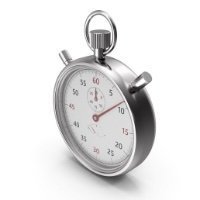Satish Sehgal faces deportation now
-
Recently Browsing 0 members
- No registered users viewing this page.
-
Topics
-
Popular Contributors
-
Latest posts...
-
391
British Man Arrested in Thailand After 25-Year Visa Overstay
Im trembling in my flip-flops..tell us more! -
4
Trump's AI Generated Video of Gaza's Redevelopment
And you guys keep buying into it hook line and sinker Trump is the greatest real.estate person of all time. Look how many of you have him living rent free in your minds. I wonder how many I can't cope threads there will be by 2028. -
4
Trump's AI Generated Video of Gaza's Redevelopment
So the president of the United States is literally posting these images on Instagram. One would think I'm lying, but I'm not. -
371
-
5
THAILAND LIVE Thailand Live Thursday 27 February 2025
Fatal Three-Vehicle Collision Outside Thung Wa Police Station A serious road crash involving three vehicles occurred outside Thung Wa Police Station in Satun on the morning of 26 February, resulting in one fatality and two injuries. Full story:https://aseannow.com/topic/1352993-fatal-three-vehicle-collision-outside-thung-wa-police-station/ -
0
Fatal Three-Vehicle Collision Outside Thung Wa Police Station
Picture from responders. A serious road crash involving three vehicles occurred outside Thung Wa Police Station in Satun on the morning of 26 February, resulting in one fatality and two injuries. The collision took place in front of Thung Wa Police Station in Na Thon Subdistrict, Thung Wa District, when a Honda car, driven by Police Sub-Lieutenant Walid Iaddii, slowed down in the middle lane to turn right into the station. At that moment, an 18-wheeler trailer truck, registered in Trang, driven by Wutthichai Pankhiew, approached at high speed and crashed into the rear of the car. The impact sent the car into the opposite lane, where it was struck head-on by an oncoming 10-wheel truck registered in Songkhla, driven by 41-year-old Kraiwith Rodkaew from Wang Wiset District, Trang. The force of the collision caused the larger truck to veer off the road, crushing the car as it fell into a roadside ditch. Emergency responders arrived at the scene to assist the injured. Both Wutthichai, the trailer truck driver, and Pol. Sub-Lt. Walid sustained injuries and were transported to Thung Wa Hospital for treatment. Kraiwith, the driver of the 10-wheel truck, was killed in the crash, trapped inside his vehicle. Rescue workers from the Rom Sai Foundation used hydraulic cutting equipment to extract his body, which was later taken to the hospital for a post-mortem examination. Authorities are investigating the cause of the crash and will question the injured drivers once their conditions improve to determine responsibility and pursue legal proceedings. -- 2025-02-27
-
-
Popular in The Pub
.png.3b3332cc2256ad0edbc2fe9404feeef0.png.8488ab72b8bb2e508209bfe3211b6e08.png)

.thumb.jpeg.d2d19a66404642fd9ff62d6262fd153e.jpeg)

.thumb.jpg.2390942dba698ccc87b36df4ddc7fb65.jpg)



Recommended Posts
Create an account or sign in to comment
You need to be a member in order to leave a comment
Create an account
Sign up for a new account in our community. It's easy!
Register a new accountSign in
Already have an account? Sign in here.
Sign In Now